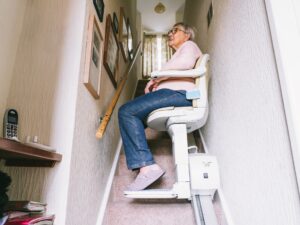Imagine waking up one day and realizing that you can no longer hear. Hearing loss can be tough to deal with and can often be permanent. Sometimes, hearing loss occurs over some time and can be challenging to spot. Unfortunately, many things we do in our daily lives can damage our hearing and lead to hearing loss. Many people also don’t know the signs of hearing loss or what to do if they experience it. Fortunately, there are some practical ways to prevent hearing loss. Here are steps you can take to protect your hearing:
1. Avoid Loud Noises
Your ears can only withstand a certain noise level before they become damaged. Long-term exposure to loud noises can cause hearing loss by damaging the delicate structures in your inner ear. To avoid damaging your hearing, try to lower or avoid loud noises as much as possible. If you know you will be exposed to loud noise, wearing earplugs or protective headsets can help reduce the impact on your ears.
It helps to be aware of the sources of loud noises in your environment and try to reduce or avoid them. This includes turning down your music, avoiding noisy environments, and wearing earplugs while mowing the lawn or at a loud concert.
2. Have Regular Hearing Tests
One of the best ways to protect your hearing is to have regular hearing tests in a reliable hearing aid clinic. Hearing tests can detect early signs of hearing loss and help you take action to protect your hearing before it becomes too late. Most audiologists recommend having a hearing test at least once every two years. Still, if you work in a loud environment or have other risk factors for hearing loss, your doctor may recommend more frequent tests. Audiologists like HearCanada offer hearing tests for you and your family. A hearing test can help detect early signs of hearing loss and allow you to take action to protect your hearing.
3. Wear Ear Protection
If you know you will be exposed to loud noise, wearing ear protection can help protect your hearing from damage. Wearing earplugs or protective headsets can reduce the amount of sound that enters your ears and prevent it from damaging your hearing. Even if you’re unsure how loud the sound is, it’s always best to wear ear protection.
4. Limit Your Use of Earbuds and Headphones
Earbuds and headphones can be helpful in listening to music or talking on the phone, but they can also damage your hearing if used too often or at too high a volume. Listening to podcasts, music, or any other audio file with earbuds or headphones at high volumes can cause permanent damage to your hearing, so it’s essential to limit the time you spend using them. If possible, try to use over-the-ear headphones instead of earbuds, as they provide more protection for your ears.
5. Take Regular Breaks from Noise
If you work in a noisy environment or if you’re exposed to loud noises regularly, it’s important to take breaks from the noise. Allowing your ears to rest for a few minutes every hour can help reduce the risk of hearing loss. Regular breaks from noise can also help prevent fatigue and stress caused by prolonged exposure to noise.
6. Get Treatment for Any Ear Infections Quickly
Ear infections can lead to hearing loss if left untreated, so getting them treated as soon as possible is important. If you have an ear infection, contact your doctor immediately for diagnosis and treatment. Certain illnesses can lead to permanent hearing loss, so getting vaccinated against these diseases is crucial if you are at risk.
There are several steps you can take to protect your hearing and help prevent hearing loss. Avoiding loud noises, having regular hearing tests, wearing ear protection, limiting your use of headphones and earbuds, taking regular breaks from the noise, and getting treatment for any ear infections quickly can all help reduce the risk of damage to your ears. These steps can help you protect your hearing and enjoy a lifetime of clear sounds.








